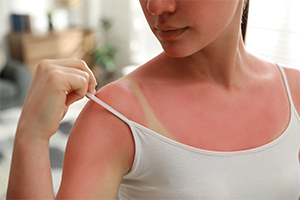

Let’s all be real here. Acnes are not good news. However, if you have painful and big bumps that won’t go away, particularly in the cheeks, jawline, or chin, you might be experiencing hormonal cystic acne. This acne can be a headache to deal with.
In this content, you will encounter why they occur and how to treat hormonal acne medically and even naturally.
Hormonal Cystic Acne: A Brief Description
Hormonal cystic acne is a sort of acne because of hormone imbalances/fluctuations. This is not a normal pimple. It’s because they are painful and deep ones that occur right beneath the skin. These acne feel like a lump or a knot and typically do not have a “whitehead” at the top.
You will mostly find hormonal cystic acne in the neck, jawline, and even lower face. Many individuals have experienced it during pregnancy, menstrual cycle and even when they’re pretty stressed.
The Causes of Hormonal Cystic Acne
There are countless reasons why hormonal acne on cheeks takes place, and some of the crucial ones are listed below:
- Hormonal Imbalance: A high level of androgen, which is a hormone, can make the oil glands go wild, and it will clog the pores.
- Menstrual Cycle: Hormones do fluctuate, particularly right before the menstrual cycle, which, in turn, causes the acne to show up.
- Diet: Food products that contain high levels of sugar, grease/fats, or dairy can also trigger acne in some individuals.
- Polycystic Ovary Syndrome (PCOS): This is one of the primary hormonal acne causes in women. If you have PCOS, there is a high chance you might develop this type of acne.
- Stress: If you’re pretty stressed, the body will produce a high level of cortisol. This will mess with other hormones in the body and trigger breakouts.
Treating Hormonal Acne Naturally: How to Do So?
Although there is no need to follow any hormonal acne diet to get it treated. However, you can surely treat this acne easily and naturally. Here are some effective ways on how to treat hormonal acne naturally at home:
- Spearmint Tea: You should consume 1 cup to 2 cups of this tea every day. It will reduce the levels of androgen.
- Zinc Supplements: Taking zinc-based supplements will aid in lowering inflammation. It will also aid your skin in healing more quickly.
- Apple Cider Vinegar: Another great hormonal acne treatment option for home is apple cider vinegar. You should mix 1 part of ACV with three parts of water. After that, use it in the form of a toner. You should only use ACV if you don’t have sensitive skin.
- Tea Tree Oil: This oil is a natural antibacterial and has anti-inflammatory properties. Take some and dab it on the pimples. The tea tree oil will surely work well if you have mild acne.
Treating Hormonal Cystic Acne Medically: Ways to Do It!
By now, you’re aware of how to treat hormonal acne naturally, but if the natural methods don’t provide you with the best outcome, you can also pick the medical treatment options.
- Birth Control Pills: These pills will aid in regulating the hormones in the body. Many women witness fewer breakdowns once they take these pills.
- Spironolactone: If you wish to learn how to control hormonal acne, you should then take the spironolactone pill under medical supervision. It will help reduce the levels of androgen, and the physician normally prescribes it for hormonal acne.
- Topical Retinoids: This is a cream that you can apply on the breakouts to lower the inflammation and clear the pores.
- Antibiotics: These are used to get rid of bacteria, but they are not a long-term fix for people with hormonal acne.
Right before you plan on using any medication, make sure to consult with a dermatologist. That way, you can prevent any unwanted issues.
Read More: Types of Acne
Conclusion
Hormonal acne can make you feel as if it’s taking over your confidence and face. Many individuals globally suffer from these breakouts, and to get them treated, you should begin by taking good care of your body and skin. You must check what exactly the hormones are doing. You should speak with a physician/dermatologist on such matters if you’re unsure how to proceed. They will tell you how to get rid of hormonal acne so that your skin can glow again.




